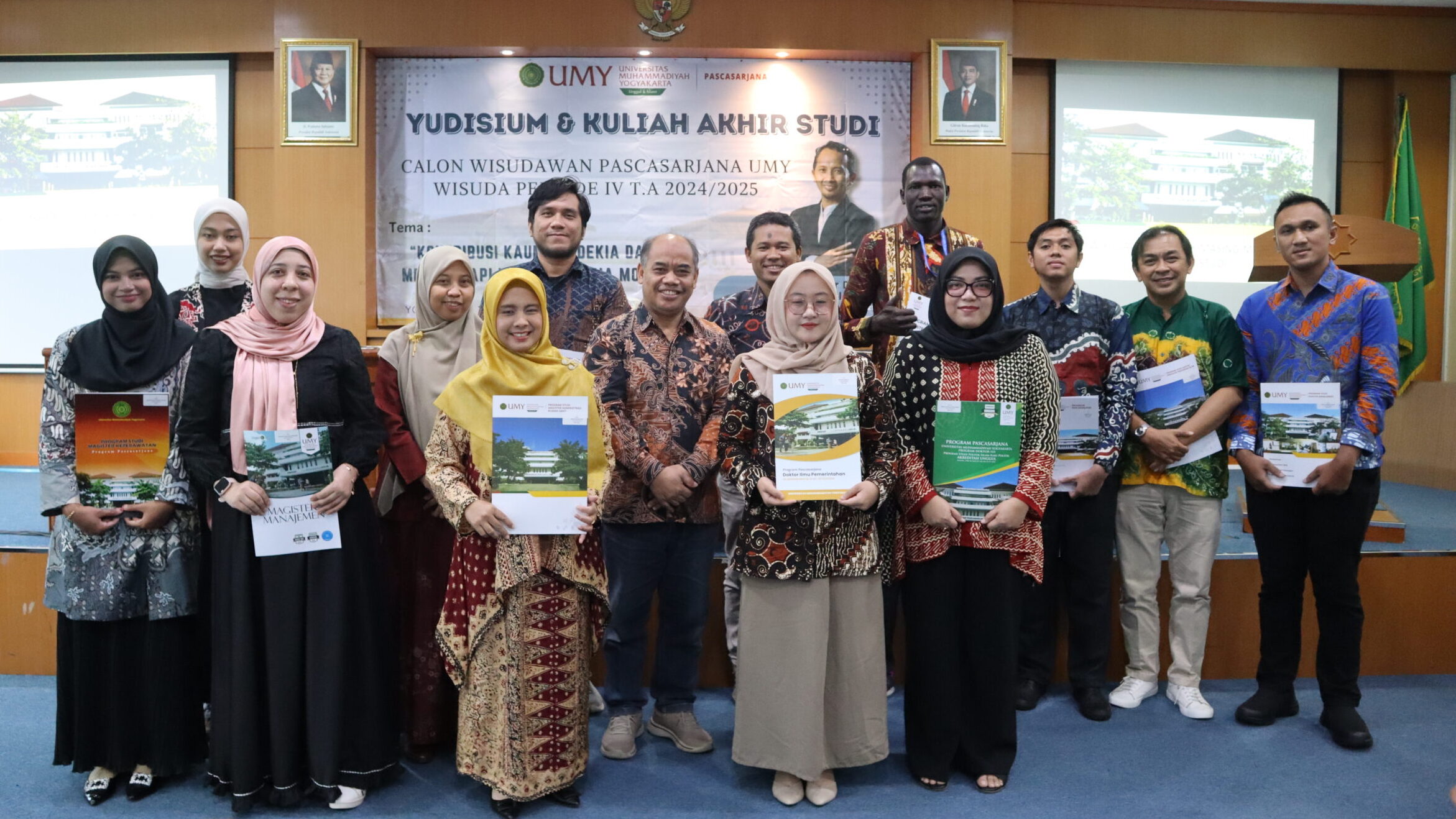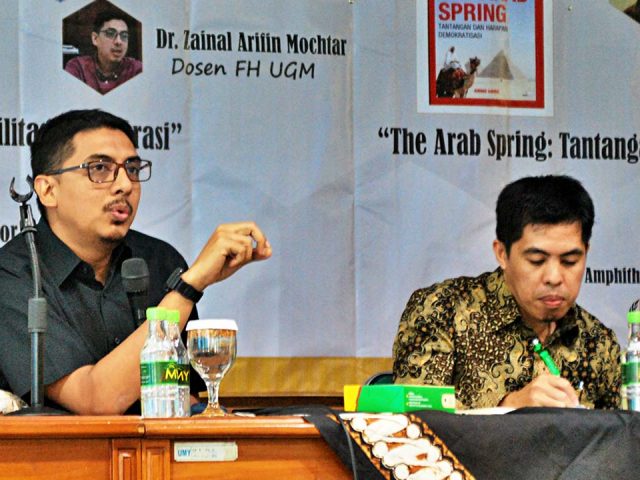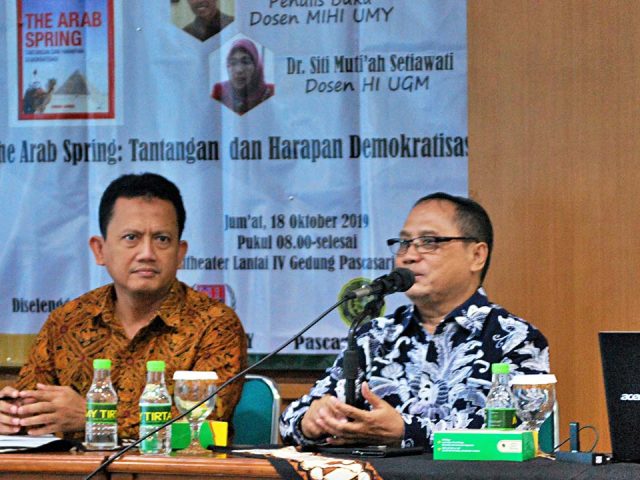
As announced on the official website of the Master of International Relations, the Master of International Relations (MIHI) program, in collaboration with the Graduate Program, held a “Book Discussion Seminar” on Friday, October 18, 2019. The seminar was held in the amphitheater of the UMY Graduate School building on the fourth floor.
Two books were simultaneously discussed in this event. The first book, titled “The Collapse of Democratic Credibility,” was written by Prof. Dr. Bambang Cipto, M.A., with Dr. Zaenal Arifin Mochtar, a constitutional law expert and anti-corruption activist from Gadjah Mada University (UGM) Yogyakarta, as the discussant. The second book discussed was “The Arab Spring: Challenges and Hopes for Democratization,” authored by Dr. Ahmad Sahide, M.A., and published by Kompas Group. Dr. Siti Muti’ah Setiawati, M.A., a Middle East expert from UGM, was invited as the discussant for Dr. Ahmad Sahide’s work.

On the first occasion, Bambang Cipto was given the opportunity to speak. He briefly explained the reasons why democracy, which emerged in the United States and Europe, is beginning to lose its credibility. Democracy is no longer considered the main path in the form of a system of government. Furthermore, there are signs that point to the collapse of the democratic system. Such as the emergence of populist parties in Europe, the tsunami of authoritarianism, and the democratic crisis in the United States with the election of Donald Trump as the number one person in Uncle Sam’s country.
In the second discussion, Ahmad Sahide revealed the history of the Arab Spring. The Arab Spring, literally translated, is a wave of revolutions that occurred in the Arab world. This revolution began with an incident in Tunisia at the end of 2010 when Mohamed Bouazizi protested against the authoritarian political system. Bouazizi protested by setting himself on fire. This incident triggered a massive wave of people power in overthrowing authoritarianism in the Arab region. Several countries affected by this political upheaval include Tunisia, Egypt, Syria, and several other Arab countries. However, Ahmad Sahide’s work focuses more on comparing the democratization process in these three countries: Tunisia, which succeeded, Egypt, which failed halfway, and Syria, which is still in turmoil today.
On this occasion, Siti Mutiah, as the discussant of Ahmad Sahide’s work, enthusiastically supported the launch of the book which examines the discussion of democracy in the Middle East. The book will contribute a lot. Ahmad Sahide’s work is a continuation of his dissertation.

Zainal Arifin Mochtar added a little about democracy in Indonesia. The marriage of the Presidential system with multi-party will produce an illegitimate child called political instability. This is where democracy in Indonesia faces a major challenge, and in fact, political instability has occurred. Starting from the 2019 elections to the emergence of the ratification of the KPK Law. The constitutional law expert from UGM also highlighted the low quality of democracy in Indonesia, including the 2019 democracy cycle.
The event closed with the distribution of souvenirs in the form of books from both speakers. Not only books, lucky questioners also received souvenirs from the MIHI study program and the Postgraduate Program, which initiated this event, which was attended by approximately 120 participants from various campuses in the Special Region of Yogyakarta.